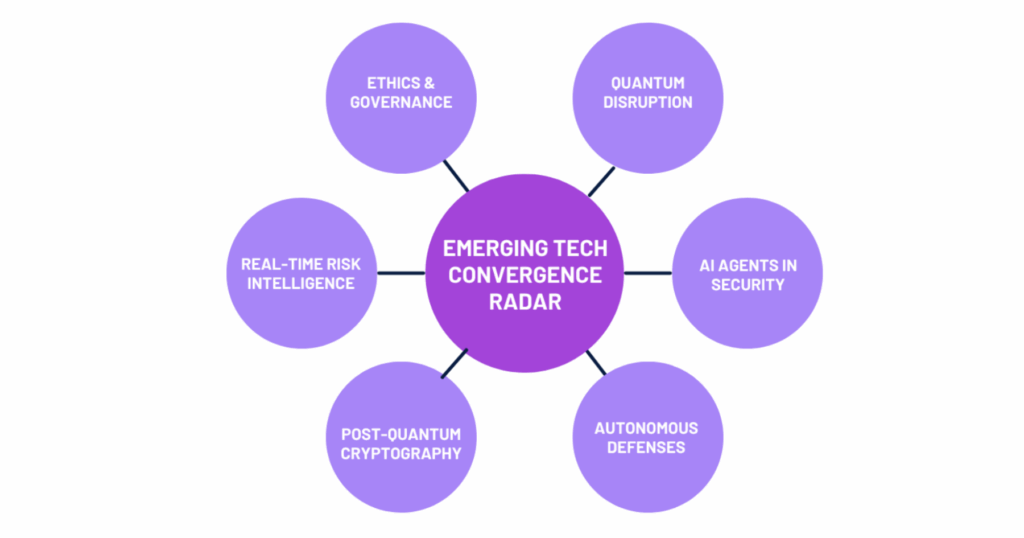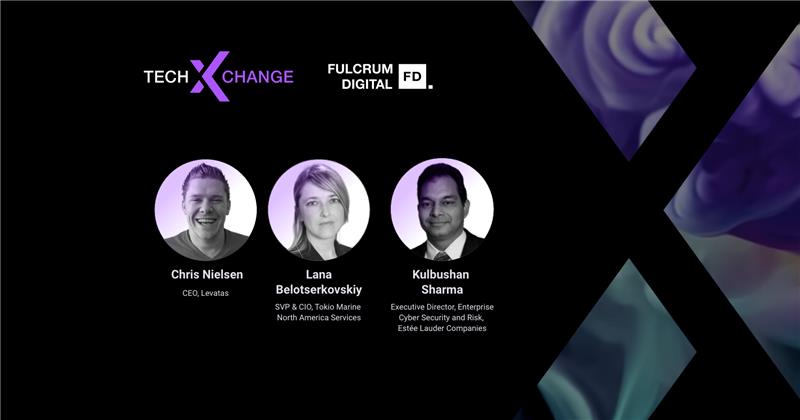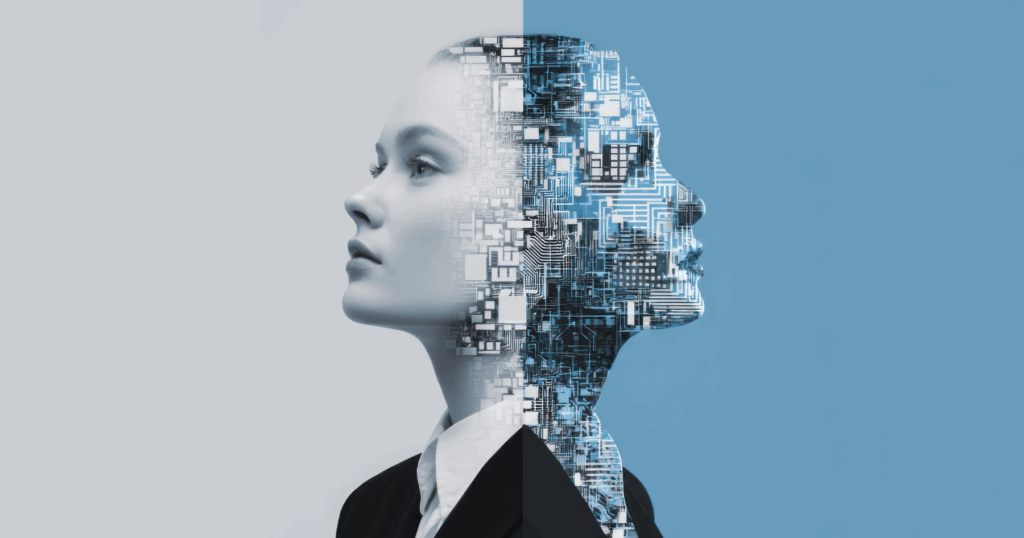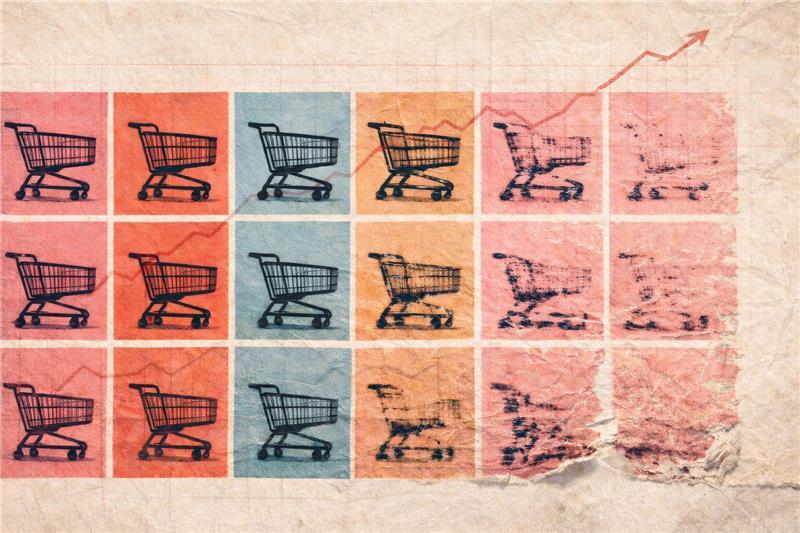In today’s tech arms race, the biggest threats are increasingly machine-made, and so are the defenses. AI-generated malware, quantum-powered breaches, autonomous agents probing enterprise weak spots: these are not next decade’s problems. They’re already reshaping how businesses think about trust, control, and infrastructure.
According to recent reports, the shifts are accelerating:
- $1B+ was invested in quantum tech in 2024, with commercial deal sizes growing in 2025.
- 33% of enterprise applications will have embedded AI agents by 2028, up from less than 1% last year.
- Post-quantum cryptography is becoming a C-suite priority, with mandates emerging by 2026.
- AI-powered cybercrime is scaling faster than traditional defense systems, forcing an evolution in how risk is assessed and mitigated.
What does this convergence mean in practice?
- Quantum Disruption: From encryption to simulation, quantum is redrawing the limits of speed and scale and breaking some of our old security assumptions along the way.
- Agent-on-Agent Warfare: AI agents are now hunting for threats, patching systems, and deploying countermeasures autonomously. But they’re also being used to attack.
- Real-Time Resilience: Enterprise platforms are shifting from static defense to live, learning systems, especially in industries like beauty, logistics, and critical infrastructure.
- Ethics Meets Engineering: As systems get smarter, so must the governance. New protocols are emerging that demand explainability, traceability, and real-time accountability.
As quantum capabilities scale and AI attacks grow smarter, enterprises are moving from theory to live defense systems. Join us at TechXchange 2025 to catch our panel unpack how leaders are building resilience in real time. Learn more:
Join us at TechXchange 2025 • Sept 4 in NYC Register now →

Behind these themes are not just research papers but actual deployments.
Levatas is building autonomous inspection robots that roam power plants and manufacturing floors. Estée Lauder is redesigning cybersecurity for global scale, where AI intersects with supply chain, personalization, and ecommerce. And Tokio Marine North America Services is advancing its tech stack to enable AI-driven risk, compliance, and infrastructure operations, designed for resilience at scale.
This systemic shift is already in motion and it’s full of uncomfortable questions. When systems act faster than humans can respond, what should be automated? Who owns the fallout of a machine-generated error? And how do organizations plan for risk when the rulebook itself keeps evolving?
Join leaders from TMNA Services, Estée Lauder, and Levatas as they discuss these issues at TechXchange 2025 in NYC on September 4. It’s a front-row look at the real technologies and real dilemmas that will define enterprise resilience for the next decade.
Come for the live demos. Stay for the real debates. Register now →






